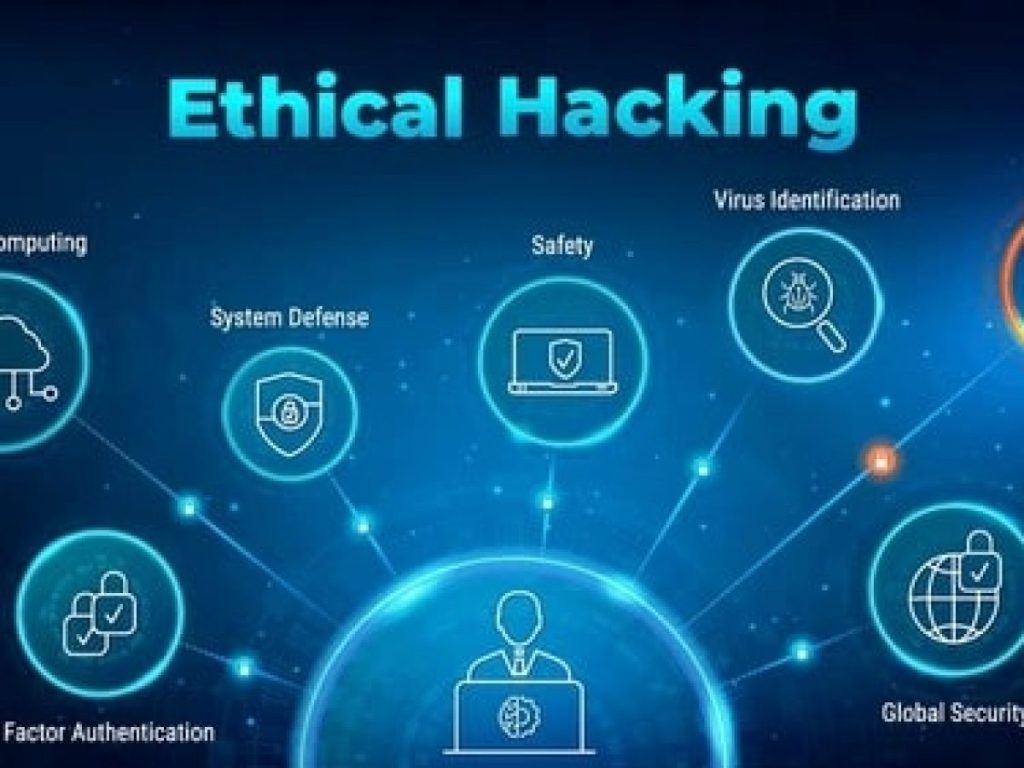In today’s digital age, cybersecurity threats are becoming increasingly sophisticated, making it essential for organizations to safeguard their systems against potential attacks. Ethical hacking courses have emerged as a crucial training ground for aspiring cybersecurity professionals, offering hands-on experience in detecting and mitigating cyber threats. These courses equip learners with practical skills and knowledge, enabling them to think like hackers but act as defenders, ensuring the security of digital infrastructures. One of the most significant benefits of ethical hacking courses is their hands-on approach. Unlike theoretical cybersecurity lessons, these programs focus on real-world scenarios, allowing students to engage in simulated attacks, vulnerability assessments, and penetration testing. By working in controlled environments, learners gain practical experience in identifying security weaknesses, analyzing malware, and exploiting vulnerabilities to understand how attackers operate. This experiential learning method is highly effective in preparing professionals to handle actual cyber threats in the real world. Furthermore, ethical hacking courses cover a broad range of topics essential for cybersecurity defense.

Participants learn about network security, web application security, cryptography, social engineering tactics, and wireless security, among other critical subjects. By mastering these tools, learners develop the technical proficiency needed to assess security risks and implement robust defense mechanisms. Another key advantage of ethical hacking courses is that they help individuals and organizations stay ahead of cybercriminals. As hackers continuously develop new techniques to bypass security systems, cybersecurity professionals must keep up with the latest trends and threats. Ethical hacking courses emphasize continuous learning and adaptability, encouraging professionals to stay updated with emerging threats and evolving security protocols. This proactive approach is crucial in minimizing the risk of data breaches, ransomware attacks, and other cybersecurity incidents that can cause significant financial and reputational damage. Moreover, ethical hacking certifications, such as Certified Ethical Hacker CEH, Offensive Security Certified Professional OSCP, and GIAC Penetration Tester GPEN, enhance career prospects in the cybersecurity industry. These credentials are highly valued by employers and demonstrate an individual’s expertise in ethical hacking and cybersecurity threat detection.
Certified professionals have a competitive edge in securing high-paying roles such as penetration tester, security analyst, cybersecurity consultant, and network security engineer. Ethical hacking courses also promote ethical responsibility and legal compliance. Unlike malicious hackers who exploit security flaws for personal gain, ethical hackers use their skills to strengthen cybersecurity defenses within legal and ethical boundaries. These courses emphasize the importance of adhering to cybersecurity laws, industry regulations, and organizational policies while conducting security assessments. By fostering a sense of responsibility, ethical hacking programs ensure that professionals uphold ethical standards while protecting sensitive data and digital assets. Ethical hacking courses play a vital role in preparing individuals for the dynamic field of cybersecurity. Through hands-on training, comprehensive knowledge, and practical skills, these courses equip learners with the ability to detect, analyze, and mitigate cybersecurity threats effectively. As cyber threats continue to evolve, ethical hacking education remains indispensable in developing skilled professionals who can defend organizations against cyberattacks. Whether for career advancement or organizational security, corso ethical hacking provides an invaluable foundation for cybersecurity excellence.

